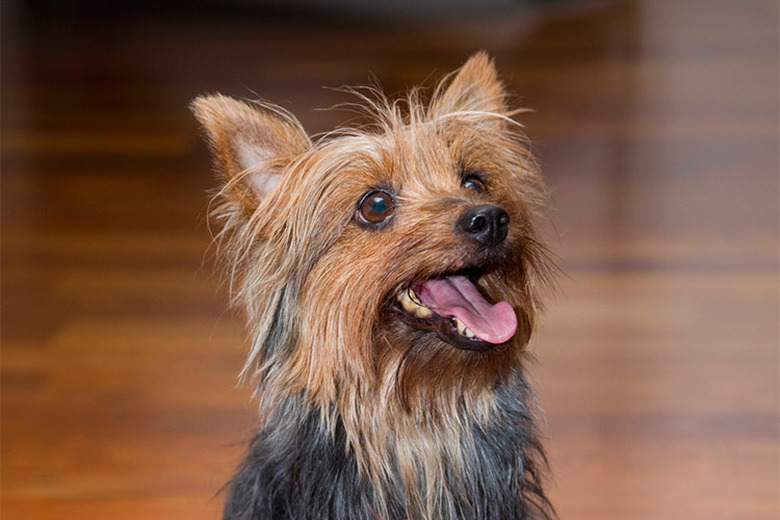Dog Smacking Lips: Why Does My Dog Keep Smacking His Lips?
Hearing your dog constantly smacking his lips might be annoying, but if it's excessive, it could be a sign of a health concern. Causes of frequent lip smacking could be anything from stress to kidney failure, so if you notice this unusual behavior, watch for other signs that might indicate the issue. When in doubt, call the vet.
Mouth pain or infection
If your dog is licking or smacking her lips excessively, there might be something wrong with her mouth. It could be something as simple as irritation caused by an object, like if a piece of a stick got stuck in her gums. It could also be the result of a mouth disorder.
Lip smacking is a known symptom of sialadenosis and necrotizing sialometaplasia in dogs. Sialadenosis causes swelling in the mandibular salivary glands, which are the salivary glands behind the jaw, and it's not caused by cancer or inflammation. Necrotizing sialometaplasia is characterized by a lesion that usually forms at the back of the hard palate. It's thought to be caused by tissue death of the minor salivary glands as a result of trauma.
Stress or anxiety
If your dog is licking his lips excessively, it could be a sign that he's stressed. Dogs exhibit certain behaviors when they feel anxious or uncomfortable. These are called calming signals. They use calming signals when there's something in their environment that they perceive as a threat. They lick their lips to appease what they're perceiving as a threat and avoid aggression.
Lip smacking could be a sign of confusion or frustration for your dog, and it often occurs when a dog is in training or learning new tricks. If you notice this behavior during a training session, it's best to wrap it up. End the session by having your dog do something he knows how to do, offer lots of praise, and wind down with some playtime to help him relax.
Nausea or upset stomach
Lip smacking is a common sign that your pet is nauseous or about to vomit. If your pet is feeling nauseous or is about to vomit, she will salivate. She might try to control the extra saliva by smacking or licking her lips. There are several things that can cause your dog to experience nausea, such as changes in diet, medication, motion sickness, and ingesting something toxic.
If your dog vomits even multiple times and then appears to be behaving normally, it's less of a cause for concern than if she vomits over the course of several hours. If it's been a few hours and your dog hasn't finished vomiting, it's time to see the vet. There may be a bacterial infection that's causing the nausea and vomiting, and that needs to be treated as soon as possible.
Loss of kidney function
If your dog is smacking his lips and has bad breath, it could be a sign of kidney disease or kidney failure. Since pets are living longer and longer, diseases are emerging that weren't commonly seen before. On a long enough timeline, kidney disease in your cat or dog is inevitable. While it doesn't usually occur until animals are in their teens, it could present sooner than that.
The early symptoms, increased thirst and/or urination, are subtle and often go unnoticed. As the disease progresses, a dog who is smacking his lips because of kidney disease may experience vomiting, constipation, diarrhea, lethargy, weight loss, bad breath, and nausea. Causes of kidney disease and dysfunction include chronic infections, such as Lyme disease, skin infections, diabetes, cancer, and autoimmune conditions. Loss of kidney function may be chronic and may continue throughout your pet's life, but other times, it's treatable or reversible.
Why is my dog licking and smacking his lips?
To figure out why your dog is licking and smacking his lips, you need to look at his other behavior and possible symptoms. For example, if the lip smacking is accompanied by yawning, it could be a sign that stress may be what's causing the behavior. If sialadenosis is the cause, it's usually accompanied by bulging eyes as well as gulping and retching when your dog gets excited.
Other symptoms may include weight loss, reduced physical activity, lack of appetite, drooling, nasal discharge, and depression. If you notice a strange behavior in your dog and you're concerned because you don't know the cause, always consult with your vet.
